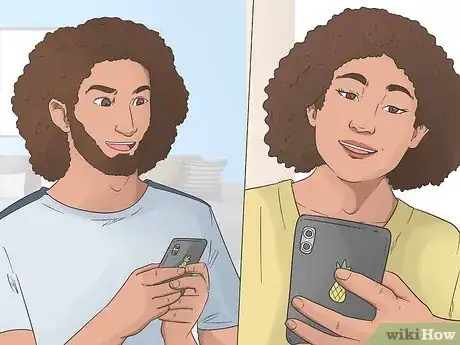This article was co-authored by Michael Dickerson, PsyD and by wikiHow staff writer, Hannah Madden. Michael Dickerson is a Clinical Psychologist with over 6 years of experience working in college counseling. He specializes in anxiety, OCD, and men's mental health. Michael holds a BA in Psychology from California State University, Sacramento and a Doctor of Psychology (PsyD) from The Wright Institute in Berkeley CA.
This article has been viewed 6,656 times.
Listening to a friend vent about their bad marriage can take its toll—but how do you help them out without pushing them away? Figuring out what to say and how to say it is important, especially if your friend has no plans of leaving their spouse. In this article, we’ve detailed the specific ways you can support your friend who’s in a tough marriage without overstepping your boundaries.
Steps
Expert Q&A
-
QuestionWhat do you say to someone who is struggling in their marriage?
 Michael Dickerson, PsyDMichael Dickerson is a Clinical Psychologist with over 6 years of experience working in college counseling. He specializes in anxiety, OCD, and men's mental health. Michael holds a BA in Psychology from California State University, Sacramento and a Doctor of Psychology (PsyD) from The Wright Institute in Berkeley CA.
Michael Dickerson, PsyDMichael Dickerson is a Clinical Psychologist with over 6 years of experience working in college counseling. He specializes in anxiety, OCD, and men's mental health. Michael holds a BA in Psychology from California State University, Sacramento and a Doctor of Psychology (PsyD) from The Wright Institute in Berkeley CA.
Licensed Clinical Psychologist Remind them that you're here to listen, and be open and understanding as they share their struggles with you. If you've gone through something similar, feel free to share that experience with them—self disclosure feels more comfortable when it goes both ways.
Remind them that you're here to listen, and be open and understanding as they share their struggles with you. If you've gone through something similar, feel free to share that experience with them—self disclosure feels more comfortable when it goes both ways.
References
- ↑ https://www.mass.gov/info-details/helping-a-friend-in-an-unhealthy-relationship-or-friendship
- ↑ Michael Dickerson, PsyD. Licensed Clinical Psychologist. Expert Interview. 3 August 2021.
- ↑ https://www.loveisrespect.org/resources/questions-to-ask-if-youre-worried-about-your-friends-relationship/
- ↑ https://www.mass.gov/info-details/helping-a-friend-in-an-unhealthy-relationship-or-friendship
- ↑ https://www.thehotline.org/support-others/ways-to-support-a-domestic-violence-survivor/
- ↑ Michael Dickerson, PsyD. Licensed Clinical Psychologist. Expert Interview. 3 August 2021.
- ↑ Michael Dickerson, PsyD. Licensed Clinical Psychologist. Expert Interview. 3 August 2021.
- ↑ https://www.mass.gov/info-details/helping-a-friend-in-an-unhealthy-relationship-or-friendship
- ↑ https://www.psychologytoday.com/us/blog/invisible-chains/202006/help-someone-in-abusive-or-controlling-relationship
- ↑ https://www.womenshealth.gov/relationships-and-safety/get-help/how-help-friend
- ↑ https://www.womenshealth.gov/relationships-and-safety/get-help/how-help-friend
- ↑ https://www.loveisrespect.org/resources/questions-to-ask-if-youre-worried-about-your-friends-relationship/
- ↑ https://www.psychologytoday.com/us/blog/invisible-chains/202006/help-someone-in-abusive-or-controlling-relationship
- ↑ Michael Dickerson, PsyD. Licensed Clinical Psychologist. Expert Interview. 3 August 2021.
- ↑ https://www.mass.gov/info-details/helping-a-friend-in-an-unhealthy-relationship-or-friendship
- ↑ https://www.loveisrespect.org/resources/questions-to-ask-if-youre-worried-about-your-friends-relationship/






































































